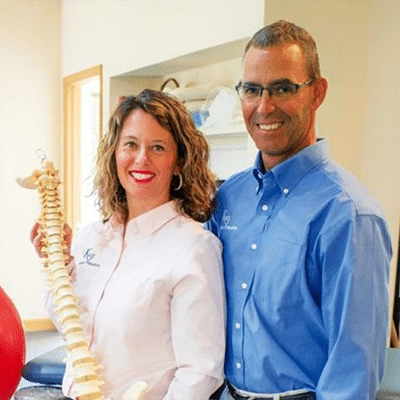When people think of neuropathy, the first thing that usually comes to mind is numbness or tingling in the feet.
But what many don’t realize is that neuropathy can have a major impact on balance, too — and if it’s not addressed, it can increase the risk of falls, injury, and a loss of confidence in daily life.
If you or someone you love has been feeling a little less steady lately, and you know neuropathy might be involved, this blog is for you.
Let’s break down exactly how neuropathy affects balance and what practical steps can help you stay safe, strong, and steady.
What Is Neuropathy?
Peripheral neuropathy is a condition that affects the nerves outside the brain and spinal cord — most commonly in the hands and feet.
It happens when those nerves are damaged, causing symptoms like:
- Numbness
- Tingling
- Burning pain
- Weakness
- Sensory loss
Neuropathy has many causes. The most common include:
- Diabetes
- Certain medications (especially chemotherapy)
- Vitamin deficiencies
- Autoimmune diseases
- Alcohol abuse
- Hereditary conditions
Regardless of the cause, when the nerves aren’t working properly, it disrupts the flow of information between your brain, muscles, and the environment around you — and that’s where balance problems can begin.
How Neuropathy Affects Balance
Balance relies on three main systems working together:
- The visual system (your eyes and what you see)
- The vestibular system (inner ear, detecting head motion and position)
- The somatosensory system (touch, pressure, and proprioception — the body’s ability to sense where it is in space)
When neuropathy affects the somatosensory system, particularly in the feet and legs, the brain gets less accurate information about:
- Where the ground is
- How stable the surface is
- How the body is positioned
Without that vital input, it’s much harder to maintain balance, especially in situations like:
- Walking on uneven ground
- Standing in low light
- Making quick movements or changes in direction
Even a minor disruption in the feedback loop can create hesitation, missteps, and stumbles — and unfortunately, that can lead to a higher risk of falls.
Signs That Neuropathy May Be Affecting Balance
You might notice:
- Feeling “off balance” or unstable while walking
- Needing to hold onto furniture or walls when moving through the house
- Tripping more often over small objects
- Difficulty walking on uneven surfaces like grass or gravel
- Hesitation or fear when stepping up curbs, stairs, or ramps
- Difficulty balancing when closing the eyes
Sometimes, the change is subtle — a slow creeping sensation that walking feels less automatic and more cautious.
But left unaddressed, even small balance issues can grow into bigger risks over time.
Why Falls Are a Serious Concern
Falls are a leading cause of injury among adults over 50 — and neuropathy significantly increases the risk.
Falls can lead to:
- Broken bones (especially wrists, hips, and ankles)
- Head injuries
- Loss of independence
- Fear of future falls, which often leads to reduced activity, further muscle weakness, and more instability
The good news?
Recognizing the connection between neuropathy and balance gives you the power to act early and prevent accidents.
Practical Strategies to Improve Balance with Neuropathy
While neuropathy can be challenging, there are many ways to work around nerve damage and stay steady.
Here’s what you can do:
1. Strengthen Core and Leg Muscles
Stronger muscles help compensate for reduced sensory input.
Simple exercises like:
- Sit-to-stand from a chair
- Heel raises
- Gentle squats
- Step-ups
Build the strength needed to control your body better during movement.
2. Practice Targeted Balance Training
Balance exercises teach your body how to react faster and recover better.
Try:
- Standing on one foot (holding a counter for safety)
- Walking heel-to-toe along a straight line
- Shifting weight side-to-side while standing
- Practicing standing with eyes closed (only with support nearby!)
A physical therapist can create a personalized balance program based on your abilities and goals.
3. Improve Sensory Feedback
Since nerve damage affects sensation, enhancing feedback helps.
- Wear supportive shoes with good tread — avoid going barefoot, especially on slippery surfaces.
- Use assistive devices (like a cane or walker) if recommended, but don’t rely on them without guidance.
- Create a safe home environment — no loose rugs, clutter-free pathways, and good lighting.
4. Manage Neuropathy Symptoms
Reducing neuropathy symptoms can improve balance indirectly.
Steps include:
- Keeping blood sugar controlled if diabetic
- Staying hydrated
- Managing medications that affect nerve health
- Addressing vitamin deficiencies (especially B vitamins)
- Exploring treatment options like physical therapy, nerve stimulation therapies, or other non-drug interventions
Consistency with care routines can make a big difference over time.
5. Stay Active
It’s tempting to slow down if you’re worried about falling — but movement is medicine.
Regular, safe activity keeps muscles strong, joints mobile, and reflexes sharp.
Consider:
- Water aerobics (low-impact and gentle)
- Tai chi (shown to improve balance and proprioception)
- Walking programs (with safety precautions in place)
Even a few minutes a day can lead to meaningful improvements in stability.
6. Be Proactive, Not Reactive
If you notice any balance issues, don’t wait for a serious fall to take action.
Early intervention through physical therapy or balance assessments can:
- Identify specific weaknesses
- Build personalized plans to regain strength and confidence
- Prevent small problems from becoming bigger ones
Think of it as investing in your future freedom and independence.
You’re Not Alone: Support Is Available
Living with neuropathy and worrying about balance can feel overwhelming — but you don’t have to navigate it alone.
A skilled physical therapy team can:
- Assess your current balance and stability
- Design a safe, progressive exercise plan
- Address your specific neuropathy symptoms
- Help you move more confidently and safely in daily life
The right support makes it easier to stay active, stay independent, and stay you.
Small Steps Lead to Big Changes
Improving balance with neuropathy is a journey — but it’s one well worth taking.
Imagine being able to:
- Walk without fear of falling
- Enjoy favorite activities like golfing, gardening, or traveling
- Keep up with family outings and social events
- Feel confident stepping onto new surfaces or into busy environments
These aren’t pipe dreams. They’re real goals — and they’re within reach with the right plan and support.
Remember, every small exercise, every balance drill, every choice to move more today is a step toward a stronger tomorrow.
Ready to Take the First Step?
If you’re feeling a little unsteady, or you’re ready to get a clear plan to address neuropathy and balance challenges, we’re here for you.
We’re currently offering a Free Discovery Visit — a 20-minute consultation to:
- Understand your unique situation
- Answer your questions about neuropathy and balance
- Create a simple, actionable plan to move forward confidently
📞 Call (239) 992-6700 or visit https://krizphysicaltherapy.com/discovery-session/ to reserve your free spot today.
It’s time to regain your balance, rebuild your confidence, and reclaim the active life you deserve.




